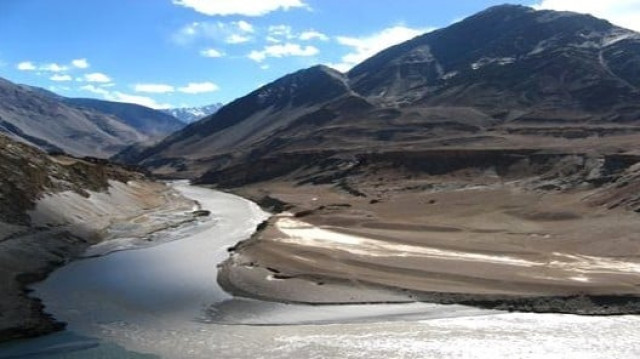Indus River Basin: a laboratory for developing civilisations
US scholar discusses one of the largest irrigation system in the world.

Indus River Basin: a laboratory for developing civilisations
He was speaking at the ‘Indus Basin Research in Pakistan and the US’ on Friday. The talk was part of a workshop on ‘Emerging Issues and Opportunities’ held at the office of United States Educational Foundation in Pakistan (USEFP).
It was attended by USEFP Executive Director Rita Akhtar and representatives of civil society working in the Water Resource Management.
Dr Wescoat is a professor at the Massachusetts Institute of Technology (MIT, USA) who earned his PhD in water resources geography at the University of Chicago. His research focuses on water systems in South Asia and the United States.
Indus water irrigation system irrigates 45 million acres of farm land. This area in turn produces wheat, rice, fruits, vegetables, sugarcane, maize and cotton in great quantity for local use as well as for export.
“Its proper utilisation therefore is very important for the economic well-being of the country,” he said, adding that the system comprised three large dams, 85 small dams, 19 barrages, 12 inter-river link canals, 45 canal commands and 0.7 million tube wells.
Stressing the need for water conservation he said that water is a vital resource and there is a need to have an efficient system for its utilisation.
“Water conservation can help in overcoming water shortage in the country. It provides for multiple needs of food, energy and environment,” he added.
Earlier, USEFP Executive Director Rita Akhtar said, “We hope that in addition to building linkages to improve water resource management in Pakistan, you will encourage your students and colleagues to apply for Fulbright scholarships when we announce the 2012 competition in February.”
Published in The Express Tribune, January 15th, 2011.



















COMMENTS
Comments are moderated and generally will be posted if they are on-topic and not abusive.
For more information, please see our Comments FAQ